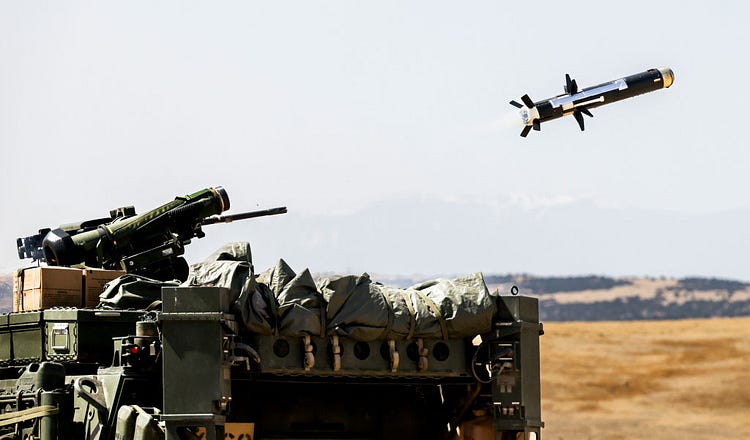America Can’t Intervene Everywhere. Where Should It?

A Javelin missile fired by soldiers with the 2nd Stryker Brigade Combat Team heads toward a target during a live-fire training exercise. The U.S. military has sent almost a third of its javelin missile supply to Ukraine. (Michael Ciaglo via Getty Images)
Biden insists we can do it all. But J.D. Vance leads a growing band in Washington who say that’s wishful thinking. He spoke to The FP.
87
This time last year, Russia-Ukraine was the hot war du jour, and officials were hectoring the Israelis for the crime of not shipping weapons to Kyiv.
Congressman Michael Turner, of the House Intelligence and House Armed Services committees, lectured: “This is the time for all democracies and all individual countries that have a moral compass to stand to…
Continue Reading The Free Press
To support our journalism, and unlock all of our investigative stories and provocative commentary about the world as it actually is, subscribe below.
$8.33/month
Billed as $100 yearly
$10/month
Billed as $10 monthly
Already have an account?
Sign In

